Intro
Discover the uses, side effects, and dosage guidelines for Lisinopril 20 Mg Tablet, a commonly prescribed ACE inhibitor for high blood pressure and heart failure. Learn about its benefits, potential interactions, and contraindications, as well as tips for safe and effective use, to manage your condition and improve overall cardiovascular health.
Lisinopril is a medication widely used to treat various cardiovascular conditions, including high blood pressure, heart failure, and myocardial infarction. It belongs to a class of medications known as ACE inhibitors, which work by relaxing blood vessels and reducing blood pressure. In this article, we will delve into the uses, side effects, and dosage of Lisinopril 20 mg tablets.
What is Lisinopril 20 mg Tablet Used For?
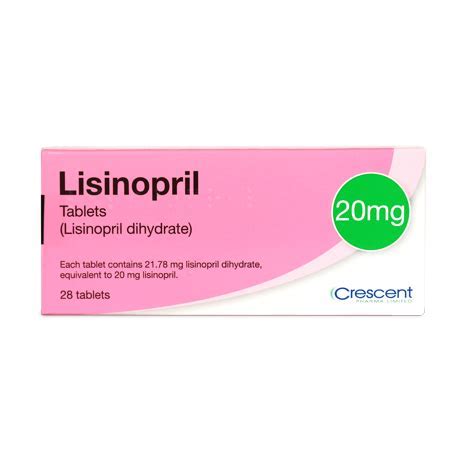
Lisinopril 20 mg tablets are primarily used to treat:
- High blood pressure (hypertension): Lisinopril helps to lower blood pressure by relaxing blood vessels and reducing the workload on the heart.
- Heart failure: Lisinopril increases the efficiency of the heart by reducing the resistance in blood vessels, allowing the heart to pump blood more effectively.
- Myocardial infarction (heart attack): Lisinopril can help to reduce the risk of a second heart attack and improve survival rates.
How Does Lisinopril 20 mg Tablet Work?
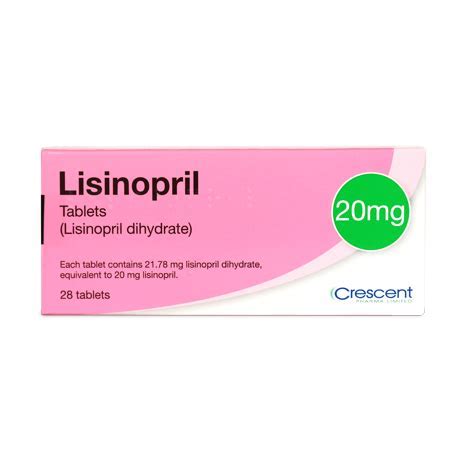
Lisinopril works by blocking the action of angiotensin-converting enzyme (ACE), a naturally occurring substance in the body that constricts blood vessels and increases blood pressure. By inhibiting ACE, Lisinopril causes blood vessels to relax and widen, reducing blood pressure and increasing blood flow to the heart.
Benefits of Lisinopril 20 mg Tablet
- Lowers blood pressure and reduces the risk of cardiovascular disease
- Improves survival rates in patients with heart failure
- Reduces the risk of a second heart attack
- Can help to slow the progression of kidney disease
Lisinopril 20 mg Tablet Side Effects
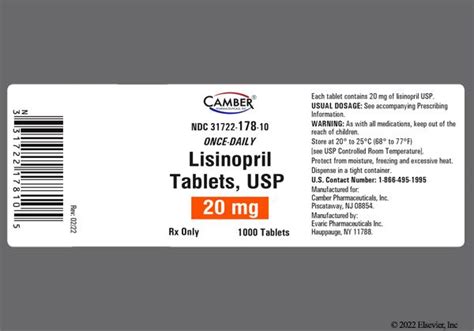
While Lisinopril is generally well-tolerated, some common side effects may occur, including:
- Coughing
- Dizziness or lightheadedness
- Headache
- Fatigue
- Nausea or vomiting
Serious side effects are rare but may include:
- Allergic reactions (hives, itching, swelling)
- Increased potassium levels (hyperkalemia)
- Kidney damage or failure
- Low blood pressure (hypotension)
Lisinopril 20 mg Tablet Dosage
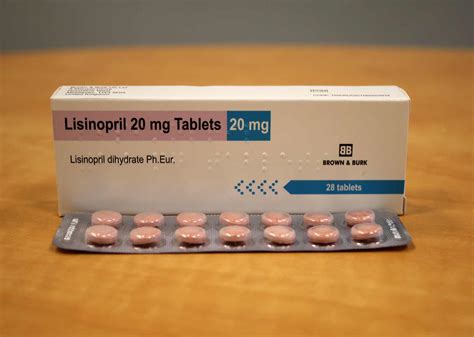
The recommended dosage of Lisinopril 20 mg tablets varies depending on the condition being treated and individual patient factors. The typical dosage range is:
- High blood pressure: 2.5-40 mg per day
- Heart failure: 2.5-20 mg per day
- Myocardial infarction: 2.5-10 mg per day
It is essential to follow the dosage instructions provided by your doctor and not to exceed the recommended dose.
Precautions and Contraindications

Before taking Lisinopril 20 mg tablets, inform your doctor if you:
- Have a history of allergic reactions to ACE inhibitors
- Have kidney disease or kidney failure
- Have heart failure or a history of heart attack
- Are pregnant or breastfeeding
- Have diabetes or high potassium levels
Lisinopril 20 mg tablets are contraindicated in patients with:
- A history of angioedema (swelling of the face, lips, tongue, or throat)
- Bilateral renal artery stenosis (narrowing of the arteries that supply blood to the kidneys)
Interactions with Other Medications
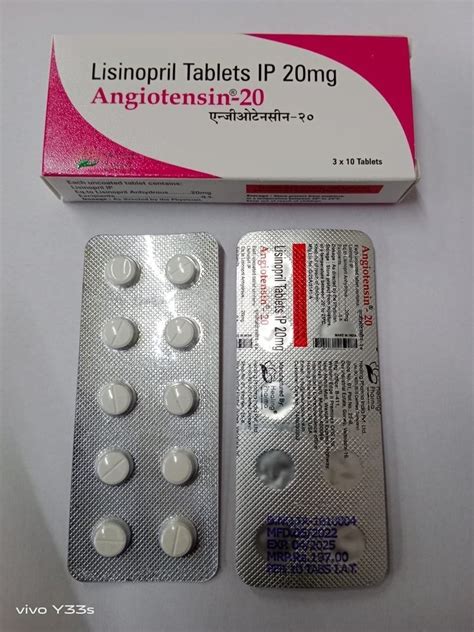
Lisinopril 20 mg tablets may interact with other medications, including:
- Diuretics (water pills)
- Potassium-sparing diuretics
- Lithium
- Nonsteroidal anti-inflammatory drugs (NSAIDs)
Inform your doctor of all medications you are taking before starting Lisinopril 20 mg tablets.
Conclusion
Lisinopril 20 mg tablets are an effective treatment option for various cardiovascular conditions. While generally well-tolerated, it is essential to follow the recommended dosage and be aware of potential side effects. If you have any questions or concerns, consult with your doctor or pharmacist.
What is the typical dosage of Lisinopril 20 mg tablets for high blood pressure?
+The typical dosage range for high blood pressure is 2.5-40 mg per day.
Can I take Lisinopril 20 mg tablets if I have kidney disease?
+Inform your doctor if you have kidney disease or kidney failure. Lisinopril 20 mg tablets may not be suitable for patients with severe kidney impairment.
Can I take Lisinopril 20 mg tablets if I am pregnant or breastfeeding?
+Inform your doctor if you are pregnant or breastfeeding. Lisinopril 20 mg tablets may not be suitable for pregnant or breastfeeding women.
